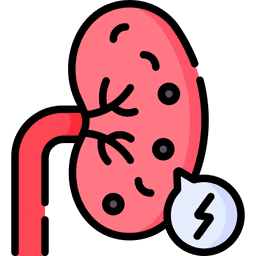Hemolytic Uremic Syndrome Treatments & Surgery
How Devasya Hospital Helps to Cure Hemolytic Uremic Syndrome?
Devasya Hospital plays a crucial role in the treatment of various medical conditions, including Hemolytic Uremic Syndrome (HUS). The hospital provides comprehensive care and expertise to help patients manage and recover from HUS. Their approach typically includes a combination of medical interventions, specialized care, and a dedicated medical team. Devasya Hospital is known to be the best hospital for Hemolytic Uremic Syndrome treatment.
Devasya Hospital has a team of experienced healthcare professionals, including physicians, nephrologists, and pediatric specialists who are well-versed in diagnosing and managing HUS. They use their expertise to provide tailored treatment plans based on the patient's specific condition. Devasya Hospital offers supportive care to manage the symptoms associated with HUS, such as anemia, low platelet counts, and kidney dysfunction. This includes close monitoring, blood transfusions, and fluid and electrolyte management.
Devasya Hospital emphasizes a patient-centered approach, tailoring treatments to the individual needs of each patient. They provide education and support to patients and their families, ensuring they are actively involved in the treatment process.
FAQs
Hemolytic Uremic Syndrome (HUS) is a rare kidney-related condition. It is frequently associated with bacterial infections and is characterized by symptoms such as anemia, low platelet counts, and kidney damage.
The treatment of HUS typically involves supportive care, which may include hospitalization, maintaining fluid and electrolyte balance, and addressing the underlying cause, such as bacterial infections. In severe cases, kidney dialysis may be necessary.
Preventing HUS primarily involves practicing good hygiene and food safety. To reduce the risk of STEC infections, which commonly trigger HUS, follow guidelines such as thorough handwashing, safe meat handling and cooking, avoiding raw meat, and proper food storage. Also, avoid unpasteurized dairy products.
HUS is primarily caused by infections with Shiga toxin-producing Escherichia coli (STEC), particularly strains like E. coli O157:H7. Other causes can include infections by different bacteria or viruses, genetic predisposition, certain medications, and autoimmune diseases affecting blood clotting and the immune system.
The outcome of HUS varies. With prompt medical attention and appropriate treatment, many individuals can recover from HUS, especially if it's related to bacterial infections. However, in severe cases or with delayed treatment, HUS can lead to complications, including kidney damage or failure. Early diagnosis and treatment are crucial for the best possible outcome.



